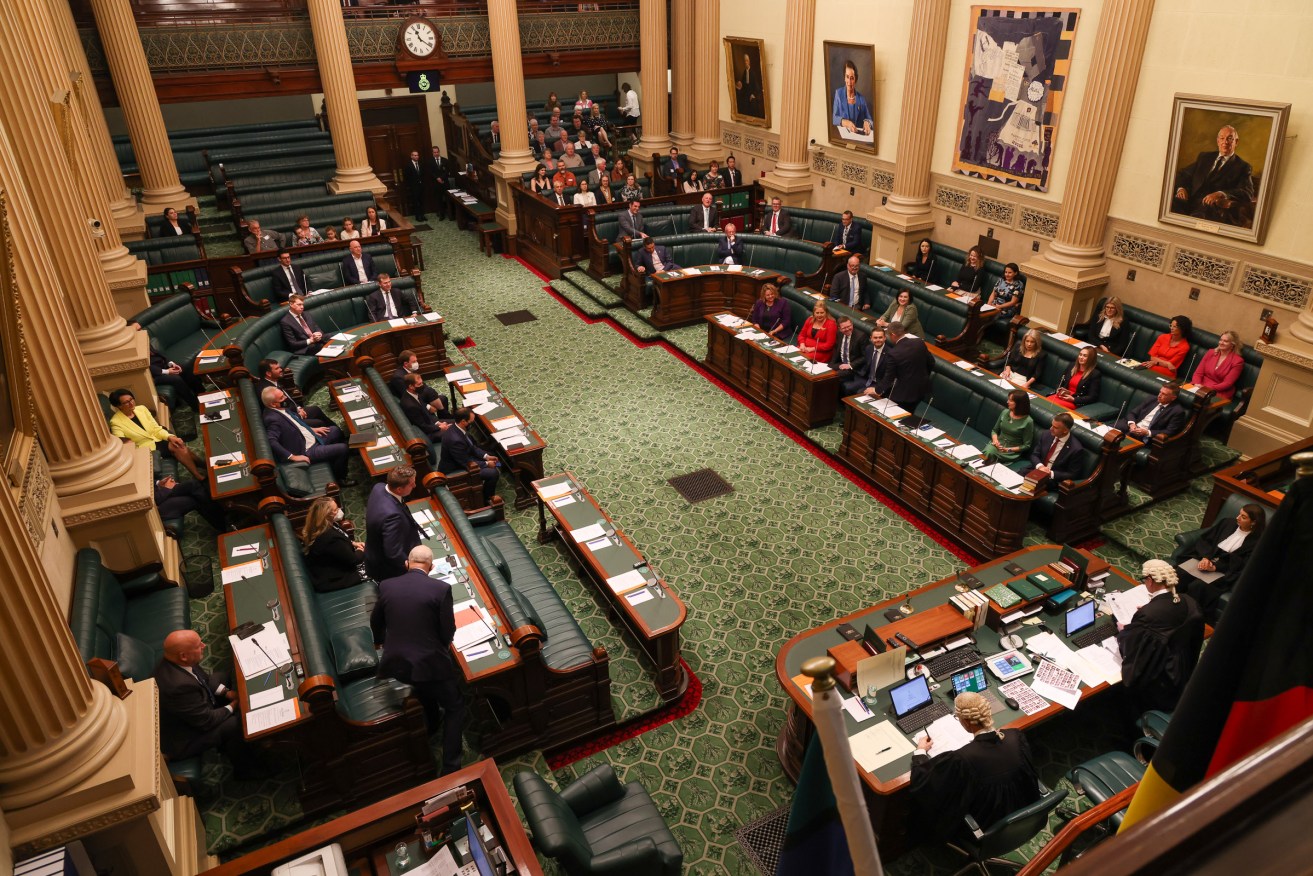New COVID laws a missed opportunity to lock in accountability
New laws to return COVID emergency powers to the Parliament fail to lock in important safeguards, writes Sarah Moulds.

Labor took over the government benches in parliament this week. Photo: Tony Lewis/InDaily
The introduction of the South Australian Public Health (COVID-19) Amendment Bill 2022 by the newly sworn-in Malinauskas Government yesterday marks an important milestone in South Australia’s response to the COVID-19 pandemic.
For more than 25 months it has been executive officers, and in particular, the state coordinator Grant Stevens, who has yielded the power to issue directions and make and break laws in response to COVID.
Many think Commissioner Stevens and his colleagues have done a great job. But the time has come to return this power to Parliament, where democratically elected representatives from all walks of life can consider how particular COVID restrictions impact on the health, social wellbeing and economic security of their constituents.
The introduction of the South Australian Public Health (COVID-19) Amendment Bill 2022 also recognises that it is the Public Health Act, rather than the Emergency Management Act, which is now better suited to dealing with the challenges arising from this longer-term threat to public health.
The return of these lawmaking powers to the South Australian Parliament offers the promise of a more balanced, sustainable and fair approach to restricting people’s rights and livelihoods in the name of public health. If done well, this could not only improve the overall quality of our state’s recovery from COVID-19, but also protect our most vulnerable.
It could also play a role in restoring trust in the institution of Parliament as a place where people can raise their concerns with things like vaccine mandates and mask wearing in a respectful and evidence-based way.
However, moving these powers away from the ‘emergency context’ also comes at the risk of entrenching potentially draconian powers into legislation, not just as temporary measures but as permeant features of our legal landscape. This was the concern when similar laws were introduced in Victoria late last year. In Victoria, this concern was addressed by adding important oversight features into the laws – including a requirement that the Minister consult widely before making new directives or imposing new restrictions, and that health advice be published so the community can see why certain restrictions might be necessary.
The Victorian Parliament also set up a special non-government controlled pandemic oversight committee, with the power to disallow directions they consider to be without clear and express authority, retrospective in effect, inconsistent with criminal law safeguards, or incompatible with human rights standards.
The proposed South Australian laws do not have these safeguards or oversight features. In fact, they do not set out any clear criteria to guide the Minister when issuing new directions or imposing new restrictions. Rather, the proposed new laws simply aim to preserve the current isolation directions relating to COVID positive people, locking in fines and other penalties for breaching these orders, and clarifying powers of enforcement.
They do not appear to be designed to set up a process for dealing with future changes to either the health threat, or the broader socio-economic landscape that might be round the corner.
In short, as currently drafted, the proposed amendments are a missed opportunity to set out a clear framework for dealing with the complex rights balancing questions that will continue to confront our community.
They are a ‘short term fix’ when what is needed is a longer-term plan for how our democracy should go about responding to this ongoing policy challenge. Hopefully, the new Government has only just got started and will move quickly to protect and promote our human rights in a more holistic way.
Dr Sarah Moulds is Senior Lecturer in Law at the University of South Australia.




